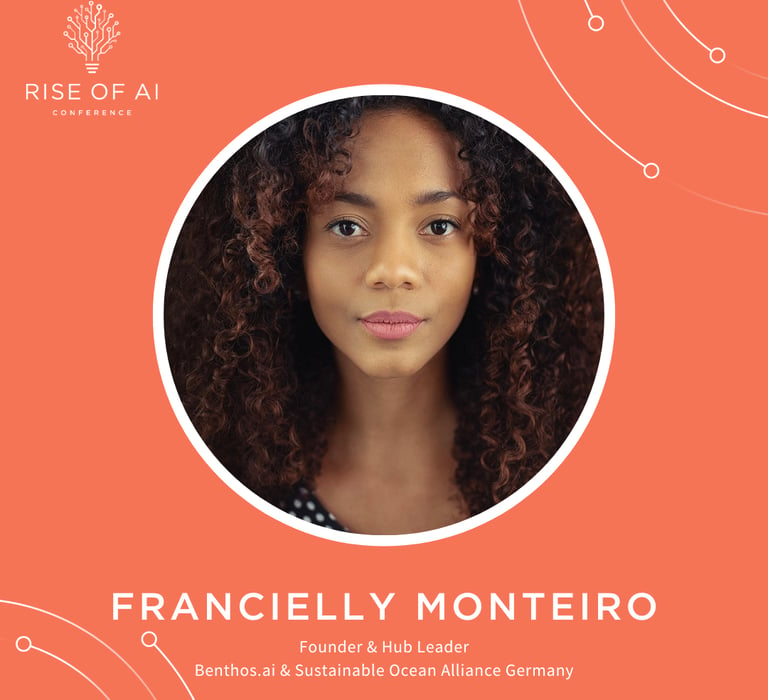Big (Ocean) Data
Benthos
5/14/20241 min read


The intersection of AI and ocean science offers a unique opportunity to address the complex and pressing challenges facing our marine environment. Our founder, Francielly, conducted an interactive round at Rise of AI, exploring the potential of AI in marine science. Francielly's work integrates artificial intelligence into environmental modeling, enabling her to develop AI-driven solutions to combat the loss of marine biodiversity.
She discussed how the concept of big data also applies to the ocean, highlighting that more ocean data has been collected in the last two years than in all previous years combined (ref). However, less than 10% of the ocean has been explored, and existing data is often scattered, concentrated in coastal regions and countries with advanced technology.
To illustrate the diversity of ocean data, she broke it down into categories like sensor and acoustic data - such as hydrophones capturing whale songs to identify species presence and movement patterns - and visual data, which has many applications in computer vision. For example, satellite imagery and underwater drones equipped with AI help map coral reef health and track marine pollution.
This discussion reinforced the importance of leveraging AI to bridge knowledge gaps, but without representative data from biodiversity hotspots - such as the tropics - creating truly effective conservation strategies remains a challenge. Francielly also highlighted how local and traditional knowledge plays a key role in shaping solutions, drawing from her own lived and shared experiences as a keynote speaker advocating for more inclusive and holistic approaches to ocean science.





